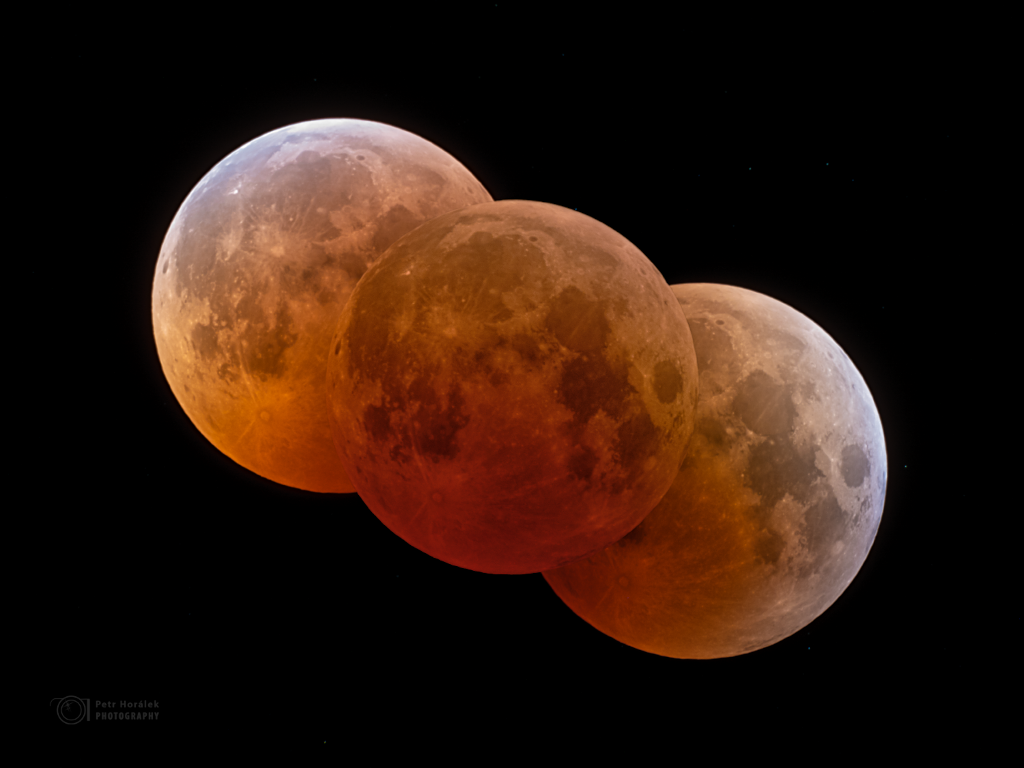Total Lunar Eclipse
Discover the cosmos! Each day a different image or photograph of our fascinating universe is featured, along with a brief explanation written by a professional astronomer.
Image Credit: KPNO / NOIRLab / NSF / AURA / Petr Horalek (Institute of Physics in Opava)
Explanation: The beginning, middle, and end of a journey through planet Earth's colorful umbral shadow is captured in this timelapse composite image of a total lunar eclipse. Taken on November 8 from Kitt Peak National Observatory this eclipse's 1 hour and 25 minute long total phase starts on the right and finishes on the left. Reddened sunlight, scattered into the central shadow by Earth's dusty atmosphere produces the dramatic dark red hues reflected by the lunar disk. For this eclipse, additional reddening is likely due to scattering from ash lingering in the atmosphere after a large volcanic eruption in the southern Pacific earlier this year. Seen at the right and left, the Earth's shadow is still lighter along its edge though. That faint bluish fringe along the lunar limb is colored by sunlight filtered through Earth's stratospheric ozone layer.
Love Eclipses? (US): Apply to become a NASA Partner Eclipse Ambassador
Tomorrow's picture: ice giant, red moon < | Archive | Submissions | Index | Search | Calendar | RSS | Education | About APOD | Discuss | >
Authors & editors:
Robert Nemiroff
(MTU) &
Jerry Bonnell (UMCP)
NASA Official: Phillip Newman
Specific rights apply.
NASA Web
Privacy Policy and Important Notices
A service of:
ASD at
NASA /
GSFC,
NASA Science Activation
& Michigan Tech. U.
When you subscribe to the blog, we will send you an e-mail when there are new updates on the site so you wouldn't miss them.

